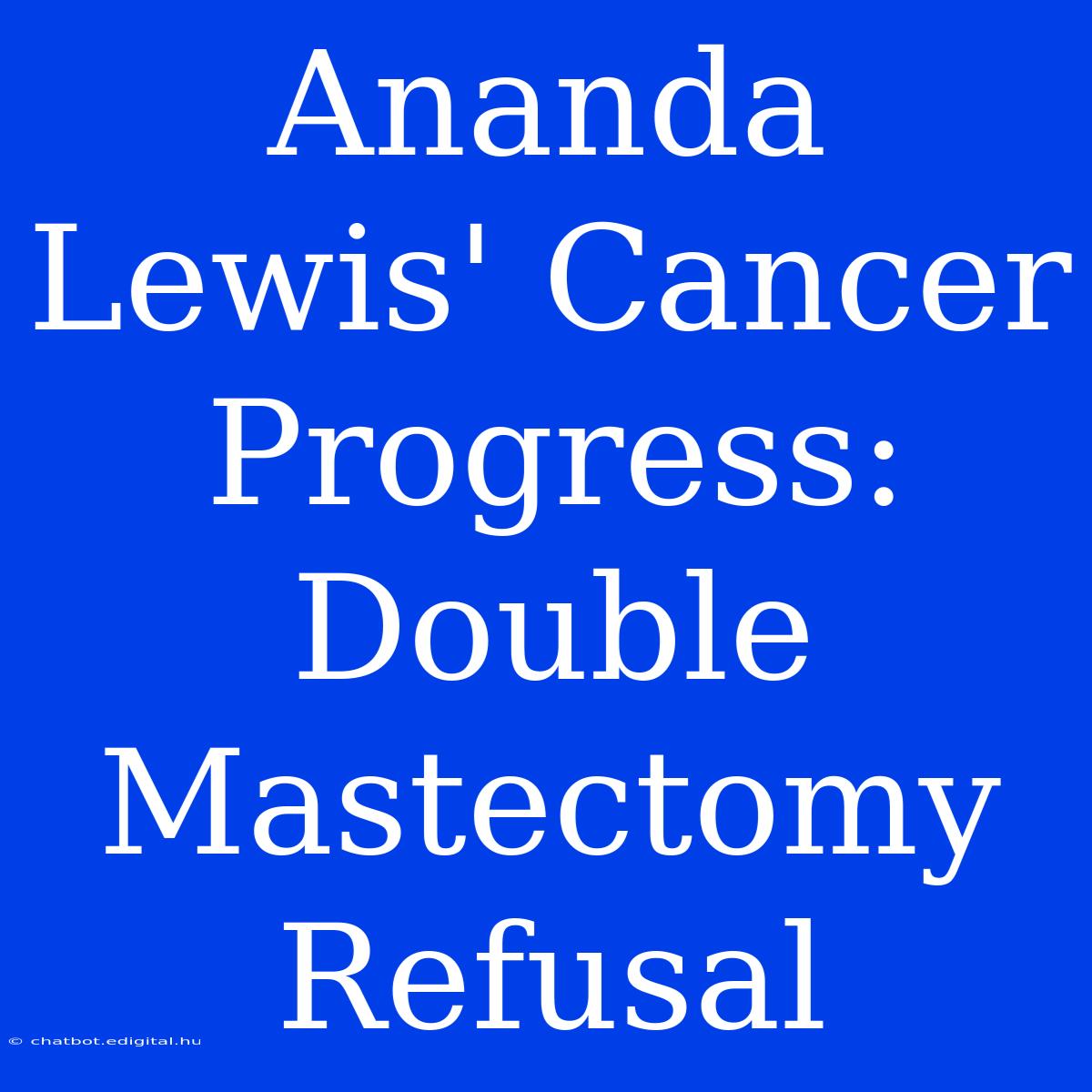Ananda Lewis' Cancer Journey: A Look at Her Decision to Refuse a Double Mastectomy
Can refusing a double mastectomy be the right choice for a cancer patient? Ananda Lewis's decision to decline this common treatment has sparked discussion and raised questions about personal autonomy in medical choices. Editor Note: Ananda Lewis's decision to refuse a double mastectomy has been a topic of discussion. Explore the factors that may have influenced her choice and the potential implications for other cancer patients.
This article delves into the factors influencing Ananda Lewis's decision, examining the complexities of navigating cancer treatment and highlighting the importance of individualized care. This case provides valuable insights into patient autonomy and the multifaceted nature of navigating cancer treatment.
Analysis:
To gain a deeper understanding of this significant decision, we researched medical literature, expert opinions, and personal narratives to gather information about the double mastectomy procedure, its risks and benefits, and the emotional and psychological aspects of cancer treatment.
Key Takeaways:
| Key Takeaway | Description |
|---|---|
| Personalized Treatment Plans | Every cancer patient's journey is unique, requiring individualized treatment plans that consider the tumor's characteristics, stage, and the patient's personal preferences and health history. |
| Patient Autonomy in Decision-Making | Patients have the right to participate in making informed decisions about their treatment plans, taking into account their values, beliefs, and potential risks and benefits. |
| Exploring Alternatives to Surgery | In some cases, alternative treatment options like chemotherapy, radiation therapy, or targeted therapies may be available and could be considered alongside surgical interventions. |
Ananda Lewis's Decision: Understanding the Nuances
The Double Mastectomy:
The decision to undergo a double mastectomy is often a challenging one for cancer patients. It carries significant physical and emotional implications, including potential complications, scarring, and the loss of body image. The surgery is typically recommended for high-risk patients or those with aggressive forms of breast cancer.
Ananda Lewis's Perspective:
While the specific reasons behind her decision are personal, it's crucial to understand the potential factors influencing her choice. These may include:
- Stage and Type of Cancer: The severity and type of cancer significantly impact treatment decisions.
- Personal Values: Individual beliefs and preferences, including religious or spiritual convictions, may play a role.
- Risk-Benefit Analysis: Every patient weighs the risks and benefits of different treatments, considering potential side effects and long-term impacts.
- Alternative Treatment Options: Ananda Lewis may have explored alternative therapies or opted for a more conservative approach, such as lumpectomy and radiation therapy.
The Importance of Informed Consent:
Ananda Lewis's decision underscores the importance of patient autonomy in medical decision-making. It emphasizes the necessity for open communication between healthcare providers and patients to ensure that every individual feels fully informed and empowered to make choices that align with their personal values and health goals.
Navigating the Emotional Landscape of Cancer Treatment:
The decision to refuse a double mastectomy can be emotionally complex. It may lead to feelings of anxiety, fear, or guilt. Support from loved ones, healthcare professionals, and support groups can be crucial in navigating these emotions.
Conclusion:
Ananda Lewis's decision to refuse a double mastectomy serves as a reminder of the individualized nature of cancer treatment and the paramount importance of patient autonomy. Each individual must navigate their cancer journey based on their specific circumstances, values, and preferences. By understanding the factors influencing these decisions and providing comprehensive support, healthcare providers can help patients make informed choices that align with their personal goals and well-being.

